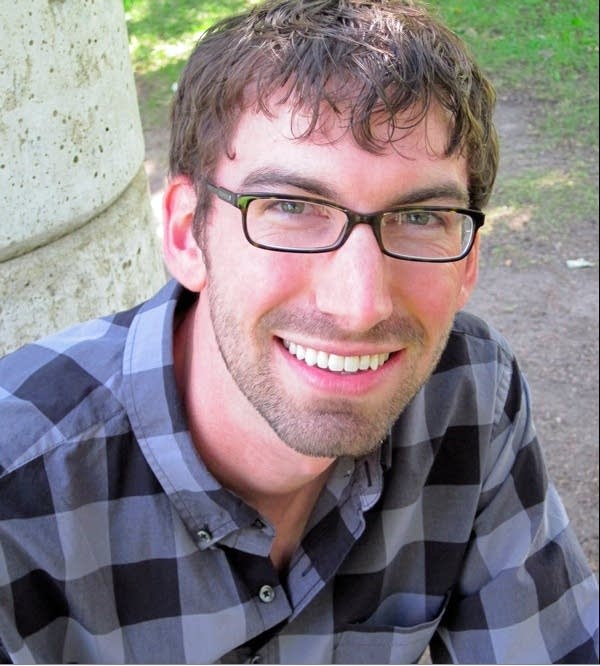Let's have some ground rules for debating the marriage amendment
Go Deeper.
Create an account or log in to save stories.
Like this?
Thanks for liking this story! We have added it to a list of your favorite stories.

Adam J. Copeland is director and mission developer of The Project F-M, which describes its mission as "making space for 20/30-somethings to love God and neighbor by cultivating an open-minded, curious faith" He is a source in MPR's Public Insight Network.
My parents' neighbor was confused. Four years ago the citizens of Florida were preparing to vote on a constitutional amendment similar to the marriage amendment slated for Minnesota's November ballot. My father, a Presbyterian pastor in Florida, put up a yard sign urging citizens to "vote no" on the amendment.
The day after the sign went up, a neighbor came by the house. In his quiet way, the neighbor kindly told my father that he must be confused about what a "yes" or "no" vote meant regarding the amendment. Our neighbor, knowing my father was a pastor, wanted to spare him the embarrassment of having put up the wrong sign.
My father smiled and thanked him even as he explained that the yard sign was no mistake. In fact, it was my family's Christian convictions that demanded they speak out against the amendment. The ensuing conversation may not have changed any votes, but it certainly deepened the neighbors' understanding of one another.
Turn Up Your Support
MPR News helps you turn down the noise and build shared understanding. Turn up your support for this public resource and keep trusted journalism accessible to all.
The story speaks to some assumptions regarding the marriage amendment debate — that all Christian pastors would support the amendment, for one. As Minnesota nears its own time of yard signs and neighborly banter over a proposed marriage amendment, I suggest the following five ground rules for the debate.
Let all Minnesotans remember that:
There is no one Christian position. Some, like the state's Catholic bishops, advocate for the amendment on Christian grounds. Others, like the majority of delegates at the recent Minneapolis Synod Assembly of the Evangelical Lutheran Church in America, oppose the amendment. As a Christian pastor myself I would be the last to say that one's religious convictions should not influence choices at the voting booth — anything but. However, it should be noted that Christians hold varied and complex positions on the amendment. We cannot be seen as one voting bloc.
We all support families. I believe both those supporting and opposing the amendment have the well-being of families at the heart of their position. In this way all voters are "pro-family;" they just deeply disagree as to what sort of families should have the legal status of marriage.
Gays and lesbians are not "others" or "alien;" they are our neighbors, our family members, our coworkers and our friends. In heated debates, we too easily jump to alienating rhetoric, even if we intend to act out of love. Bearing that in mind, we must carefully monitor our public conversations so that we do not demonize those with whom we disagree.
The Biblical argument is hotly contested. What the Bible has to say about homosexuality and marriage is still being debated. Thousands of pages analyzing the Bible and homosexuality have been published in recent years. The Bible will certainly be a deciding factor for people on both sides of the issue, but that does not solve the problem of its diverse interpretations.
Traditional labels do not always apply and may not be helpful. Consider the Log Cabin Republicans, a grassroots conservative organization supporting freedom and equality of gay and lesbian Americans. Similarly, I have friends who are progressive on most issues, but have a very traditional position on marriage. Not too long ago I heard a gay man speak about the death of his partner in the 1990s. Someone asked him, "Did your partner die from AIDS-related complications?" The man laughed. He said, "No, he didn't have HIV/AIDS. He died in a car accident while driving his Harley Davidson to a motorcycle rally." Stereotypes do us no good, no matter on which side of the amendment debate we fall.
Certainly, I have my own position on the proposed amendment — I will be voting against it — but that is not really my point here. More broadly, I hope Minnesota conducts the looming debate in a way that might make us all proud, whether or not our position wins a majority vote.
Diversity of opinion is part of what makes our state great. We can show our Minnesota values by debating our differences with civility, humility, and kindness.
Those are my proposed ground rules for the marriage amendment debate. Might there be better ones? Yes; I bet there are and I would love to hear your suggestions. But there is no need to raise your voice. I am right here, neighbor.



